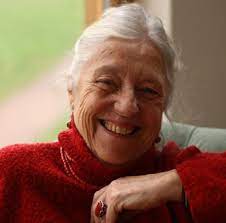Mitchell, Juliet

Bio: (1940-) British feminist. Juliet Mitchell studied at Oxford and taught at several British universities among which are Cambridge and University College London. Mitchell belongs to the current of socialist feminism but in her article "Women: The Longest Revolution" (1966) she accused socialism of failing to lead to the emancipation of women, while theoretically reproaching socialist ideology for studying the position of women only through the role of women in the economic production. She believed that Marxist feminists should problematize the psycho-sexual foundations of gender relations, and that would require a complete revision of the Marxist theory. In his book Women's Estate (1971), Mitchell argues that the women's liberation movement, which emerged in the United States, was inspired by the African-American Civil Rights Movement of the 1960s. In the same book, she states that the high participation of women in the labor force is not enough to achieve equality, because women must enter employment with a built-in independent economic interest. She also advocates the introduction of various forms of communal family life, which would correspond to the specific wishes and circumstances of the people in those communities.
In Psychoanalysis and Feminism (1974), Mitchell combines Althusser's view that ideology is relatively independent of economic relations with Jacques Lacan's psychoanalysis. The view of the relative independence of ideology enables Mitchell to create a theory of the subordination of women, which is independent of the analysis of the role of women in capitalist production. She believes that the role of women in the economy was key for women's position while the whole society was based on kinship, however, in capitalism kinship ceased to be the basis of social and economic reproduction. The subordination of women in modern society is more maintained through ideology, and the ideology itself is reproduced on a subconscious level through the re-enactment of Oedipal drama between generations. That is why the struggle against patriarchy must take the form of a cultural revolution. Mitchell, unlike most feminists, was a supporter of psychoanalysis. She was a supporter of Freud's teaching and believed that he did not defend the symbolic order, but only described it.
Fields of research
Capitalism Community Culture Economy Gender Ideology Kinship Movements, Social Patriarchy Psychology Role, Social Socialism ViolenceMain works
„Women: the Longest Revolution”, in New Left Review (1966);
Psychoanalysis and Feminism: Freud, Reich, Laing, and Women (1974);
The Rights and Wrongs of Women (1979);
Feminine Sexuality: Jacques Lacan and the Ecole Freudienne (1982);
Women, the Longest Revolution (1984);
Mad Men and Medusas: Reclaiming Hysteria (2000);
Siblings: Sex and Violence (2003).

